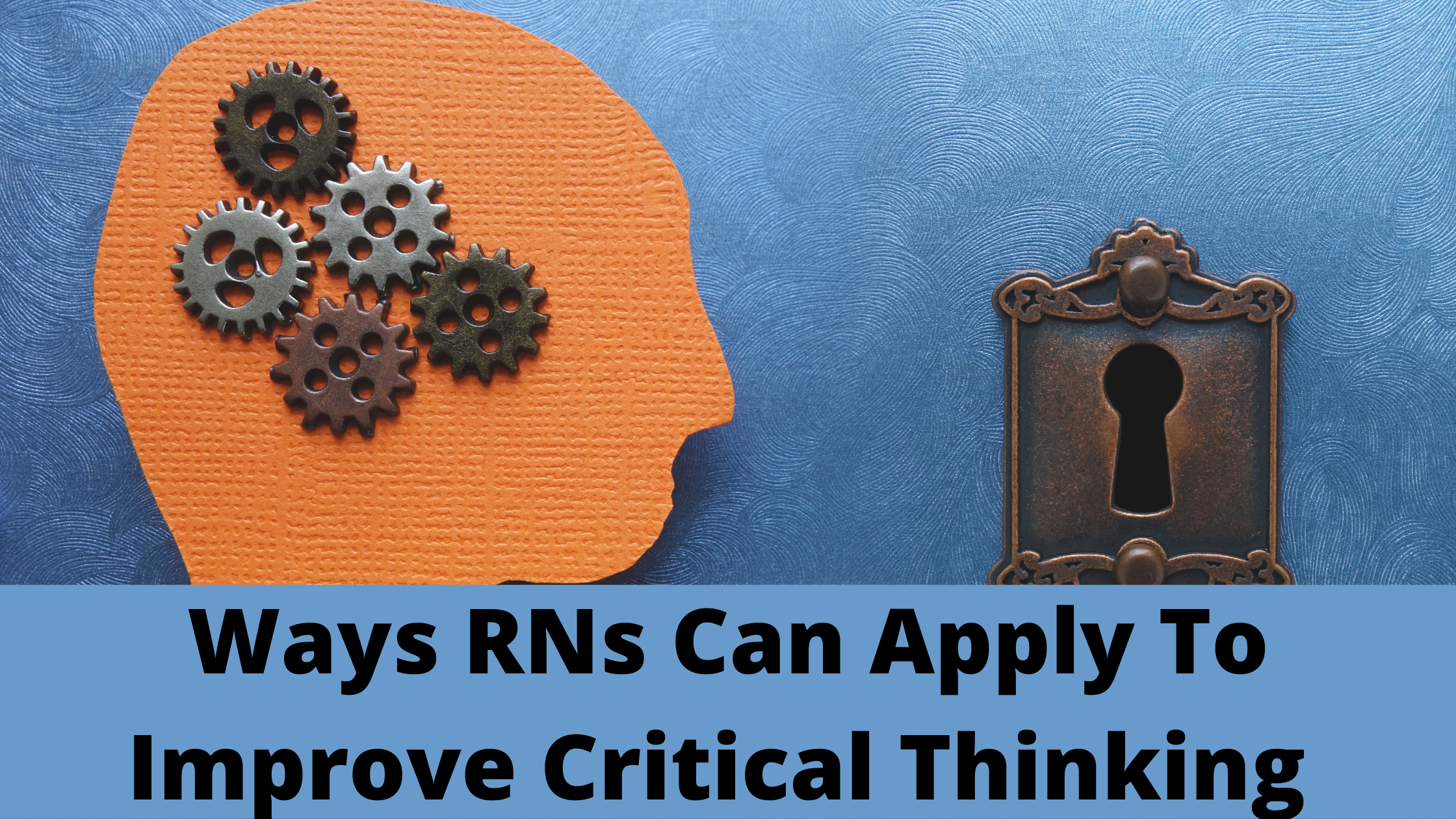
With excellent critical thinking skills, nurses can be life-changing leaders. They can dispute assumptions, develop creative solutions to common problems in the medical industry, and determine underlying problem triggers. Without these skills, nurses may rely on automatic reactive problem responses and end up missing out on numerous opportunities to develop goal-driven and visionary changes. Read on for tips to help nurses enhance their critical thinking.
Know the eight components of thought
Being conversant with the eight components of thought and their application in the nursing industry is crucial to reinforcing an RN’s critical thinking skills. These components are:
First, understand the problem you are trying to solve by determining the reason behind a patient’s symptoms.
Understand why you need to solve the problem. For example, you could be seeking to help the patient manage their pain.
Know your viewpoint regarding the problem. This may include your nursing training, worldview, and experiences.
Beware of your assumptions. Have you encountered similar symptoms before? Could you have an interpretation of what the symptoms illustrate?
Determine your theoretical mechanism for drawing a conclusion, including your knowledge of nursing theory and medical science.
Establish attainable and non-attainable facts. The attainable facts can support a single conclusion, but your evidence may be misleading when you lack sufficient facts.
Understand logical processes on which you base your conclusion.
Determine the implications of your conclusions on the best treatment procedure for your patient.
Read and Listen Critically
To become a critical thinker, you must read and listen critically, a crucial skill for registered nurses. Critical listening is the process of attempting to understand another individual’s viewpoint wholly and precisely to evaluate it open-mindedly. To listen to your colleagues or patients critically, consider using the same thought elements you utilize in your thinking.
Determine the other person’s viewpoint regarding the matter, the assumptions they are making, and the evidence they have to support their viewpoint, and the significance of their stance. Critical reading involves the same approach as written content, like an article in a medical journal or textbook.
Ask Questions
RNs can improve their critical thinking skills by asking questions whenever necessary. For example, suppose a colleague recommends a particular treatment course, find out whether they have considered other options first. Ask them why they chose that specific treatment option and seek the evidence they relied on to make their conclusions.
Determine whether your colleague can prove the authenticity of the evidence. Recommend alternative options and consider questioning yourself critically before making conclusions.
Increase your knowledge through learning
RNs should consider enrolling in refresher courses in their field. Nursing programs involve exercises to boost reasoning skills. For example, some Universities in the USA offer Registered nurses a bachelor of science in nursing course. It includes training in systematic patient evaluation, critical thinking, and evidence-oriented approaches for data analysis.
Enroll in a high-level nursing certification course, increase your critical thinking knowledge, and understand how you can use it effectively in your nursing profession.
Adopt self-reflection
Experts advise nurses to reflect on their success and failures in their shift and determine areas they should improve on or situations they should have sought assistance. Self-reflection is a personal evaluation process RNs can use to observe and assess situations and their responses.
The process allows RNs to realize mistakes they may have made and discover new behavior standards they can adopt to make informed decisions. Many RNs already use this approach. For instance, if you are involved in a disagreement or quarrelsome meeting, consider analyzing the situation in your mind.
Think about how you’d have handled it better. Evaluate your day-to-day decisions and determine whether you should have sought more information or asked detailed questions before responding. As you self-reflect, assess the situation in reverse. While this strategy may not give you an answer immediately, it will allow you to view the problem from a different perspective.
Apply Self-awareness
Self-awareness and ensuring your mind is present in the moment plays a crucial role in boosting critical thinking skills for RNs. When many nurses encounter hectic shifts, they are highly likely to lose focus. However, allowing your mind to be present enables you to be focused on your thoughts and envision what may occur.
Remaining present allows you to listen actively, which improves your judgment skills while availing more information that you can utilize to gauge your decisions and interventions.
Conclusion
Critical thinking for RNs helps safeguard patient health and facilitate career advancement and professional development. RNs can adopt the strategies in this article in their roles to improve their critical thinking skills.
🎓 Ready to Take the Next Step?
By submitting, you agree to receive information from schools that match your interests.